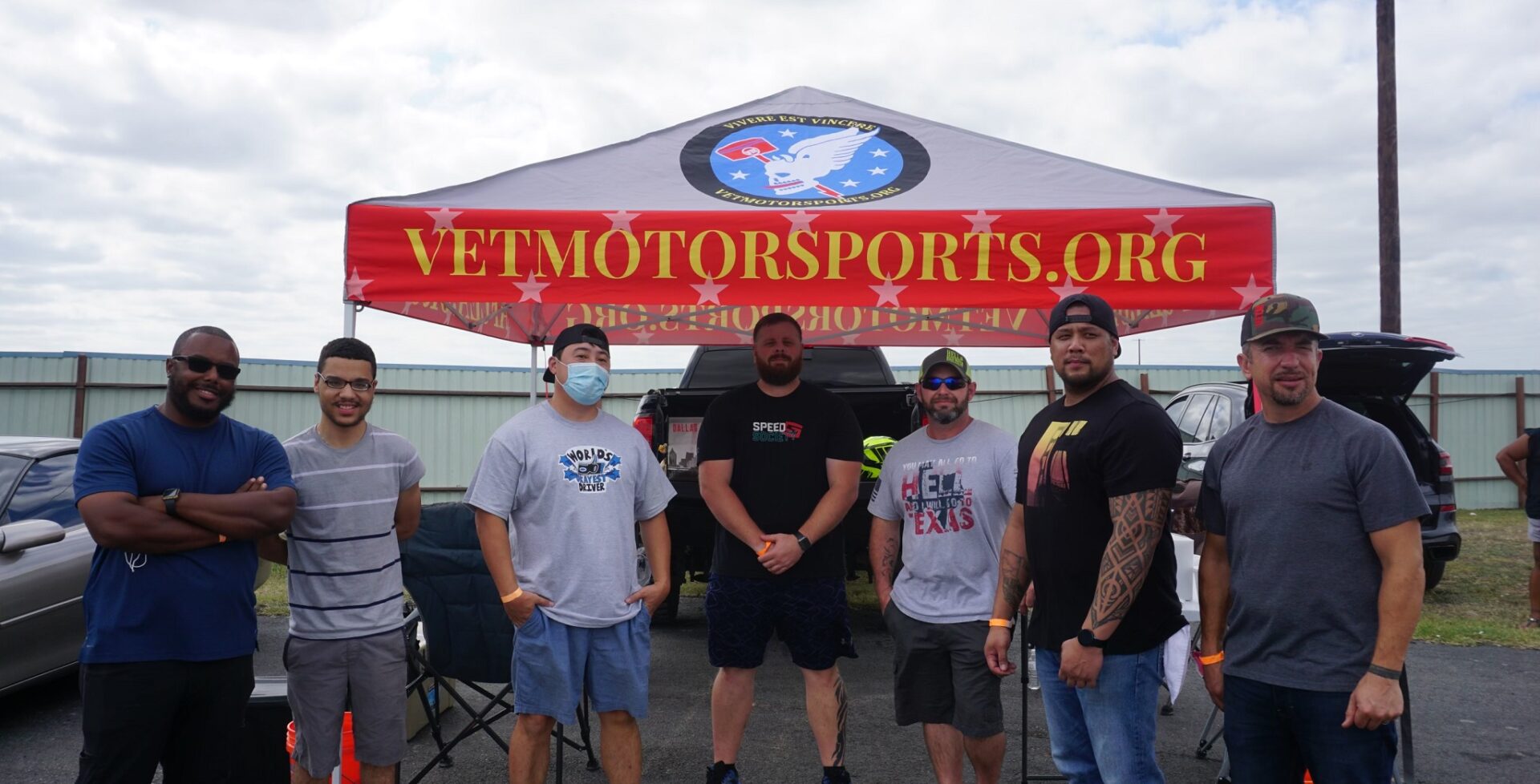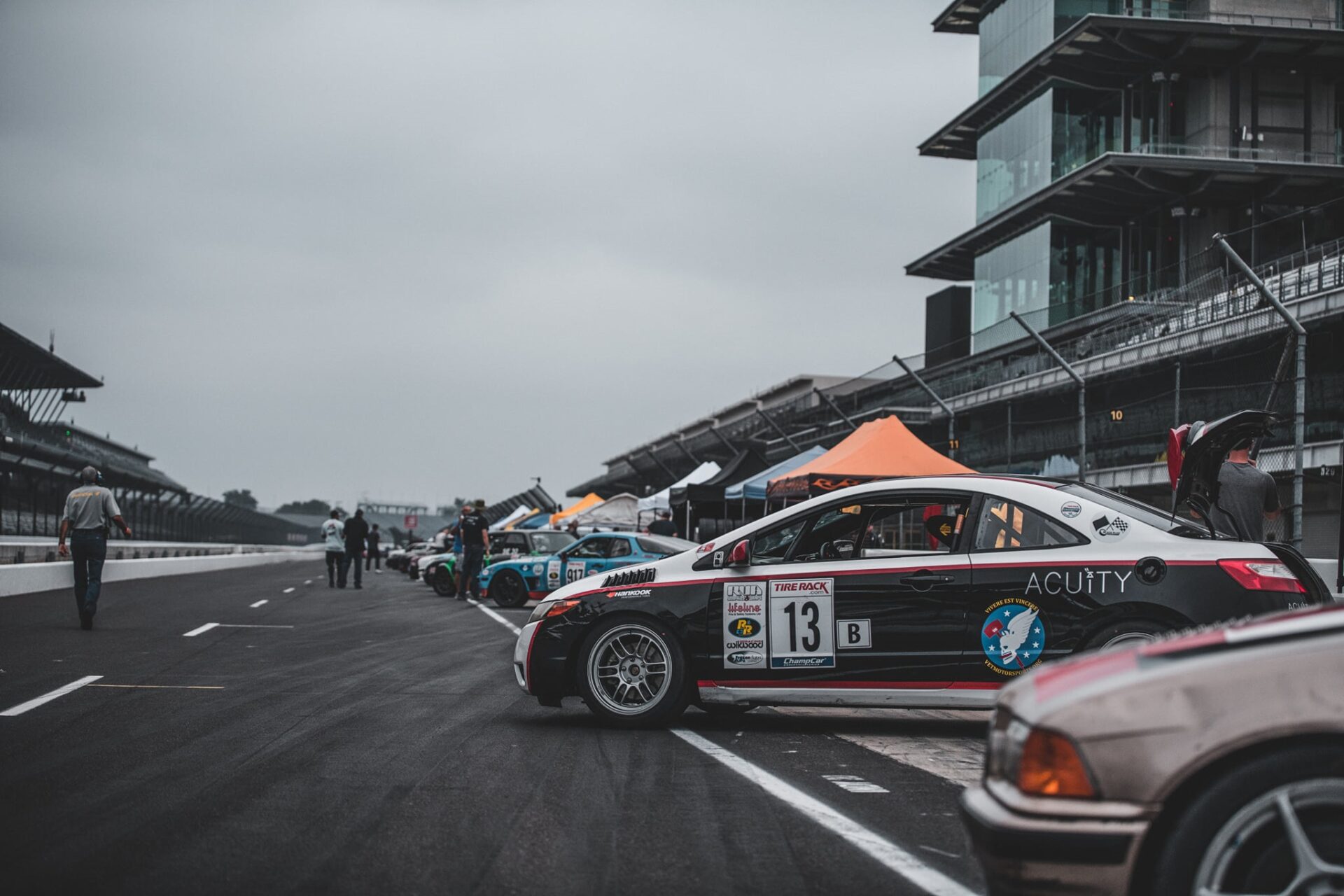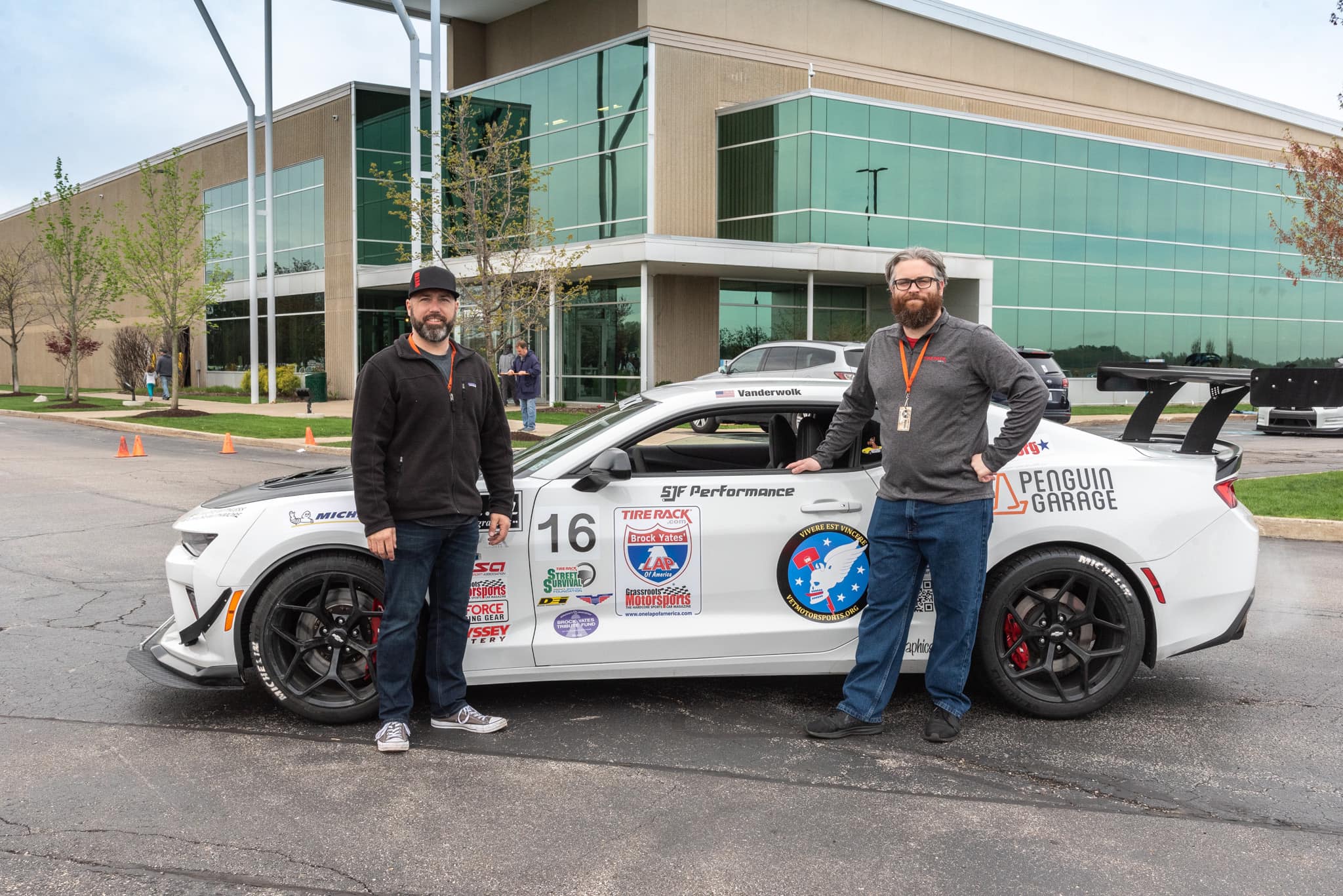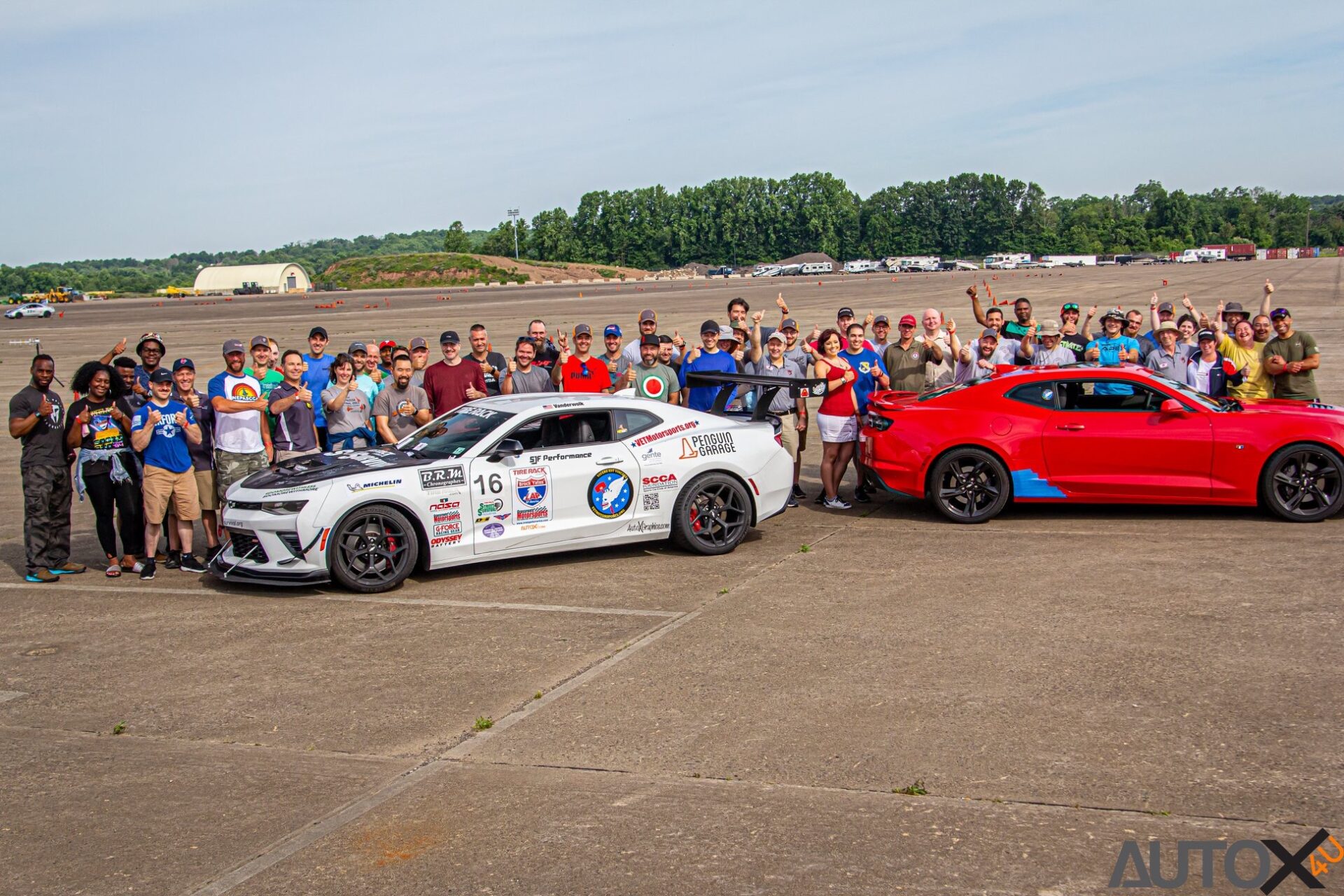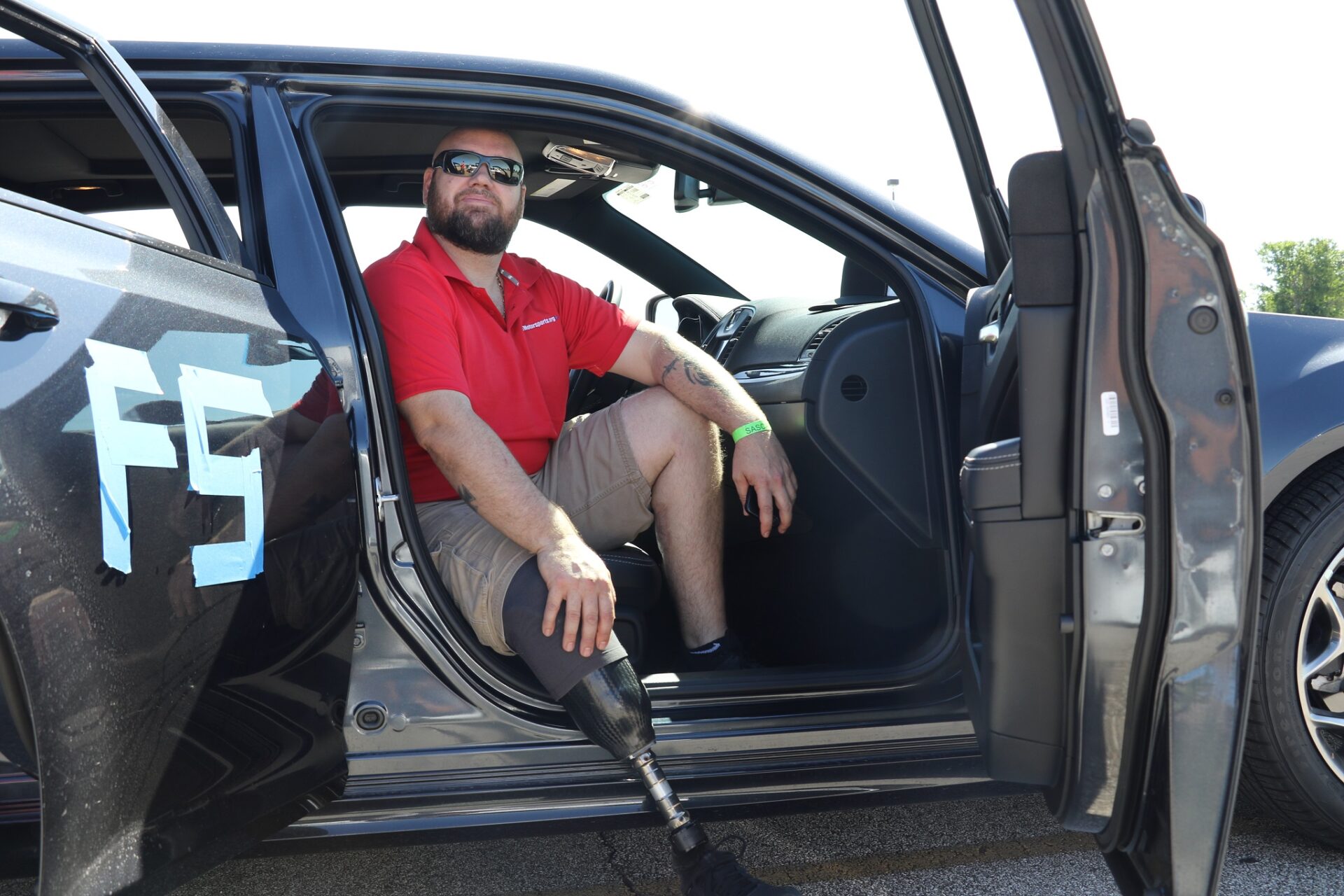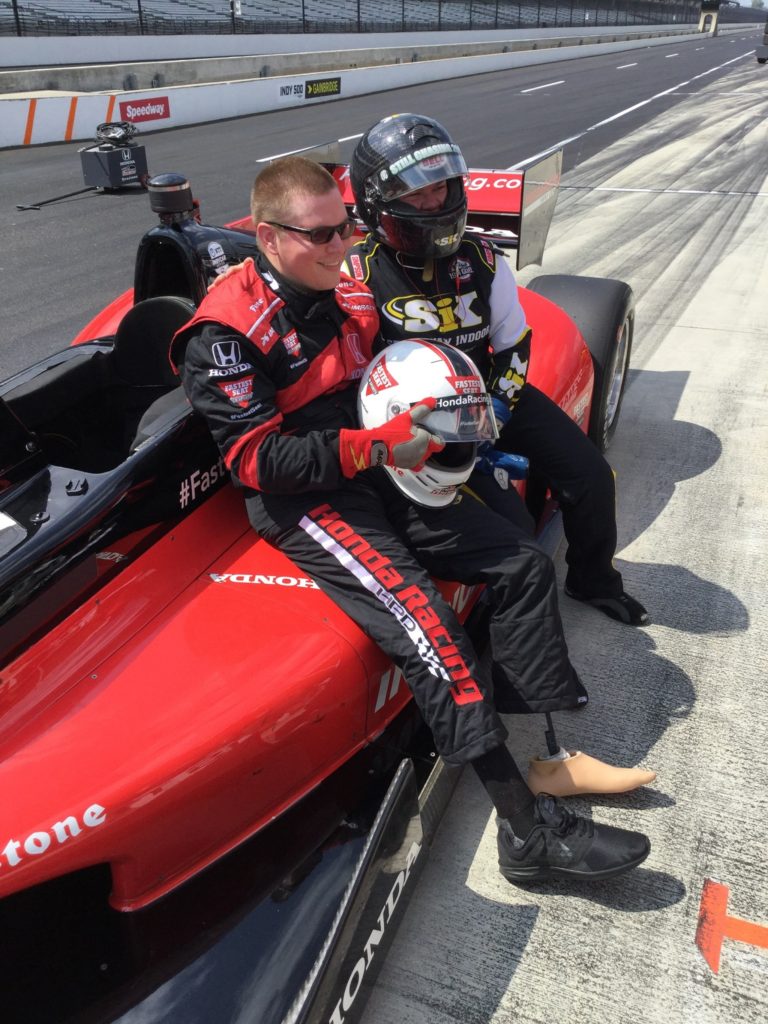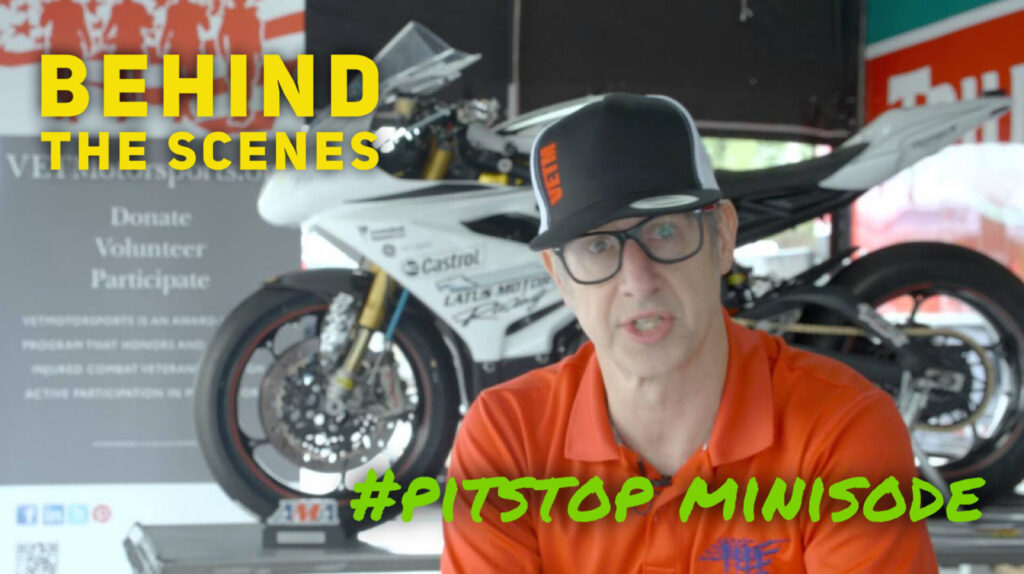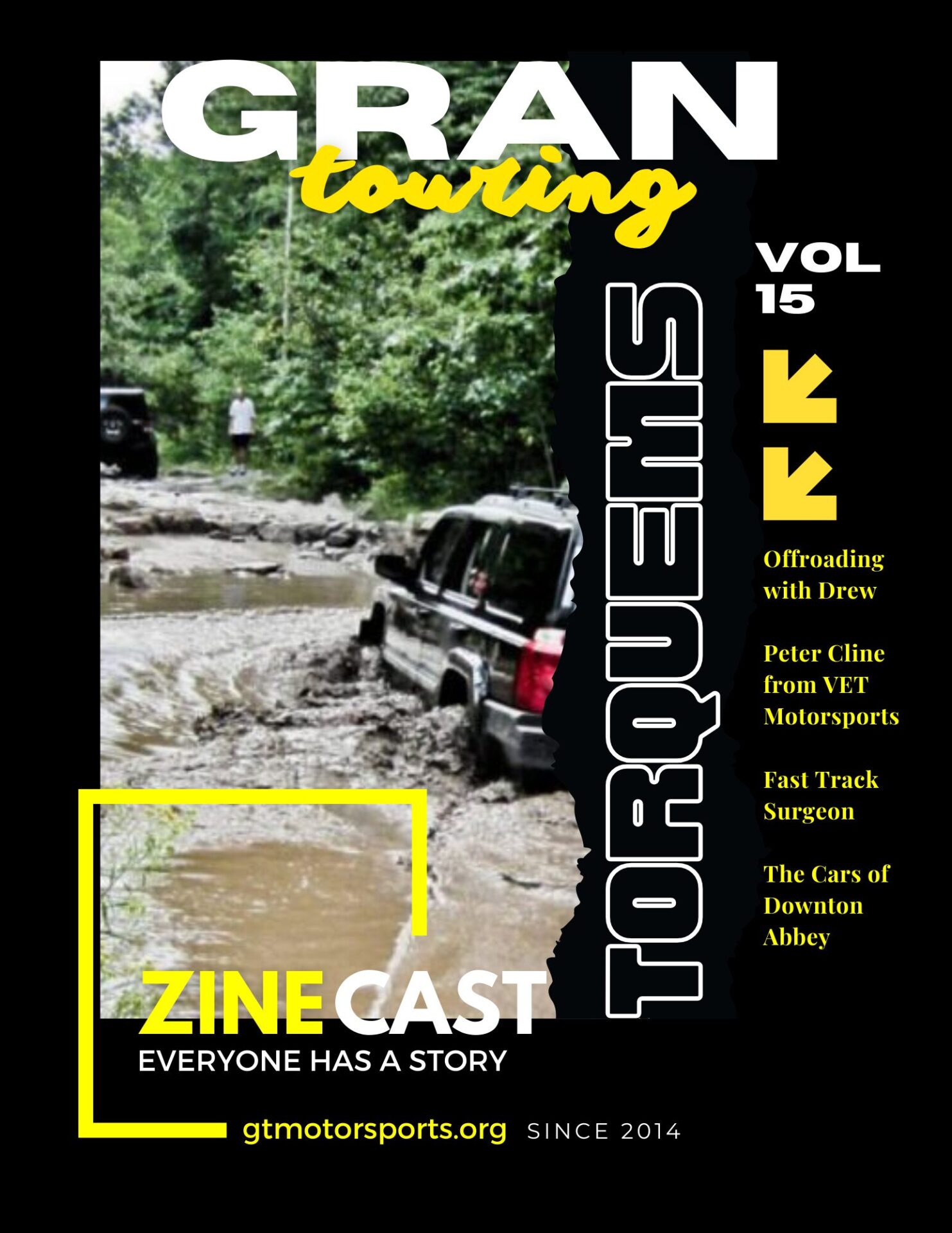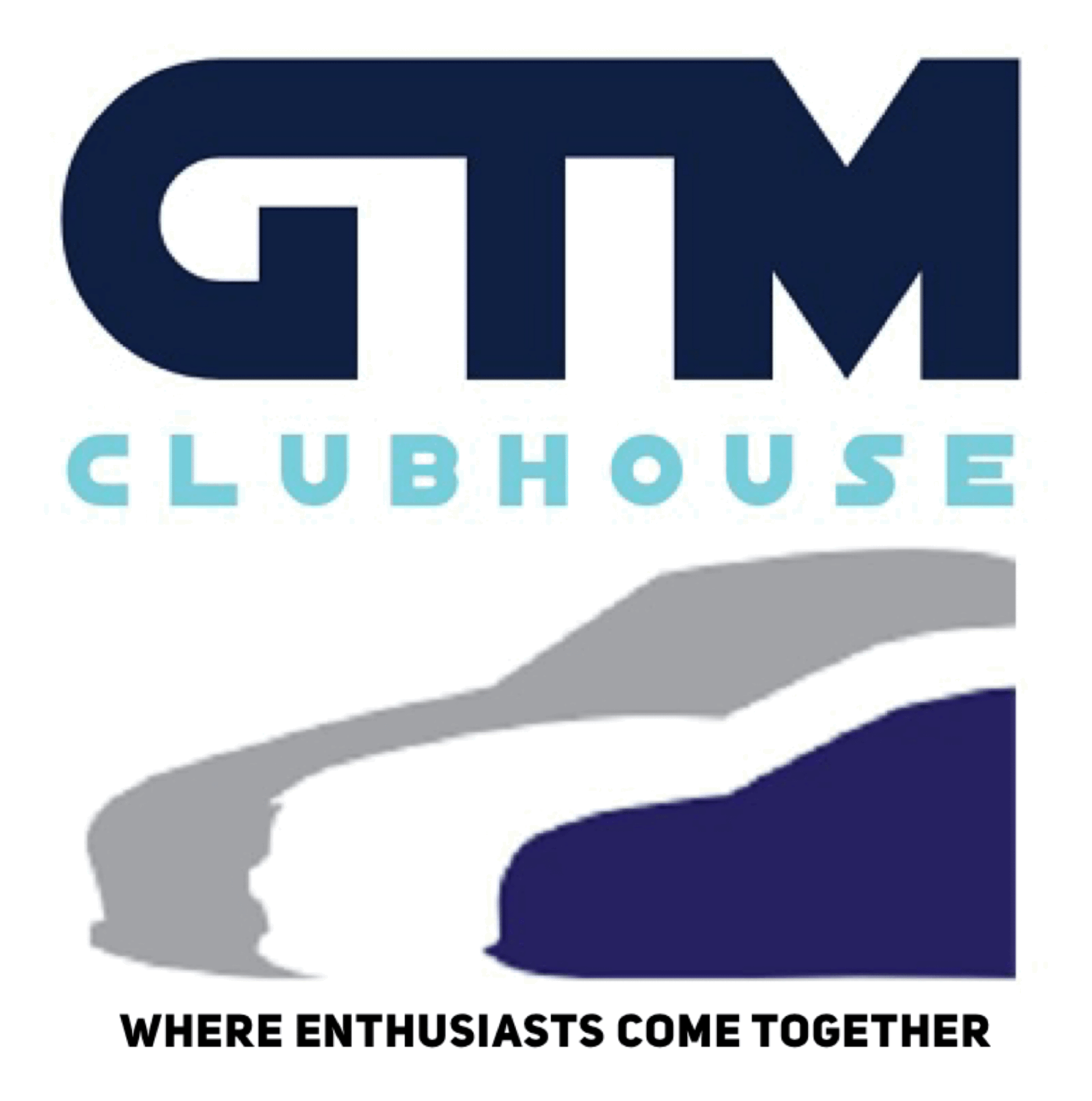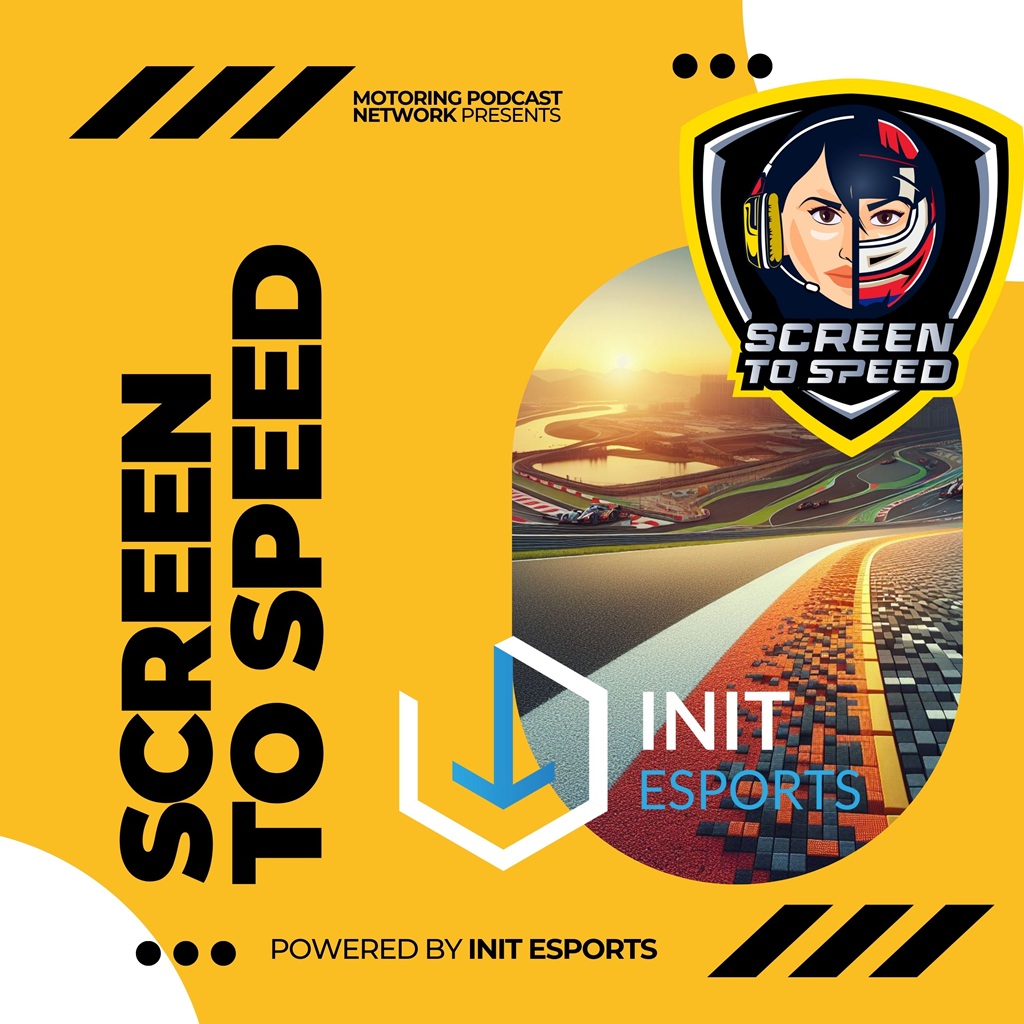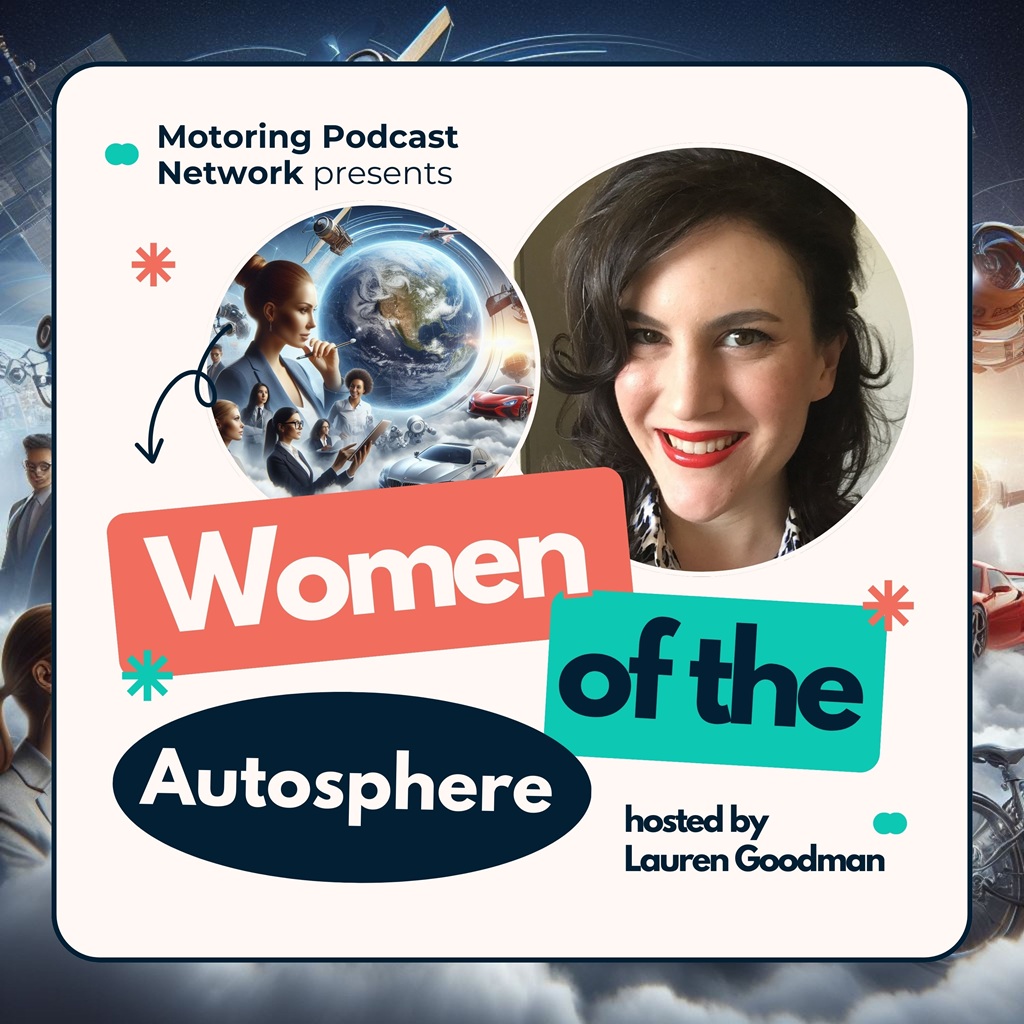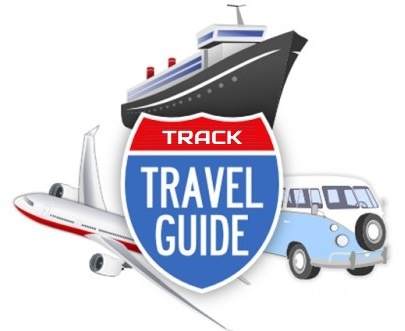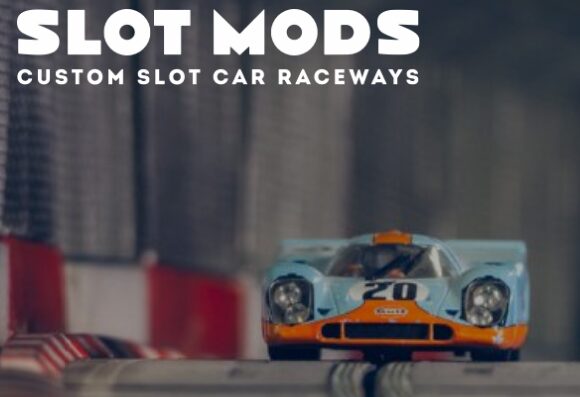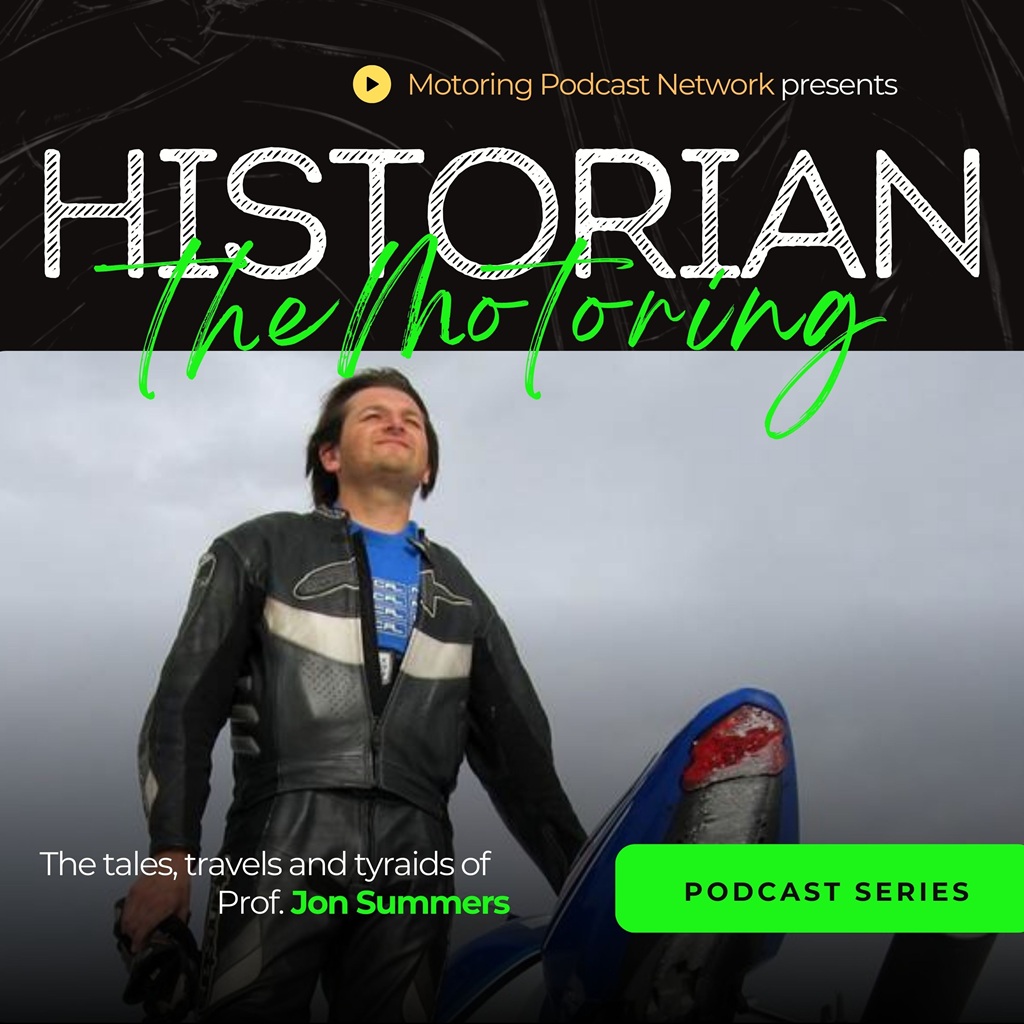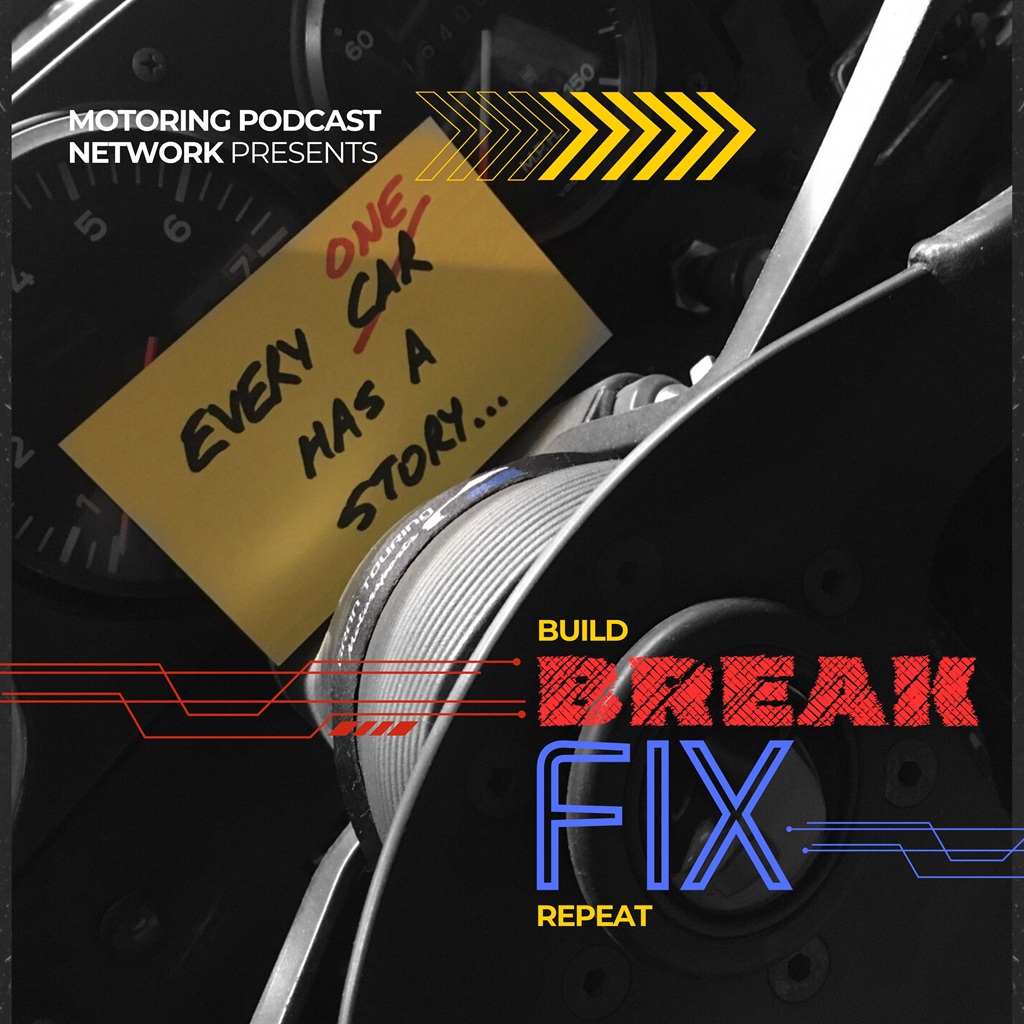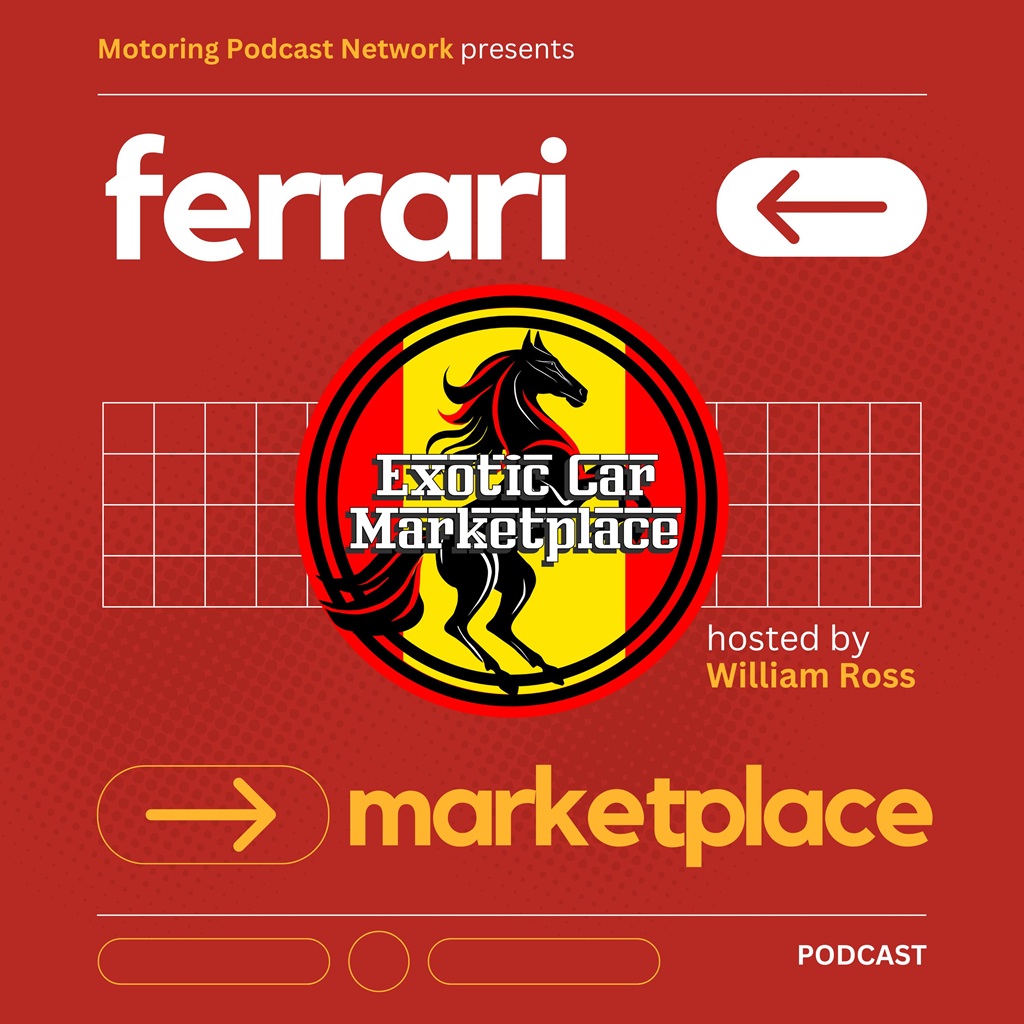For years now GTM has participated in community, charity and philanthropic events like SCCA’s “Helmets off to Heroes”, and last season we were introduced to the team from VETMotorsports, an organization that, since 2013, takes Veterans with service connected injuries and places them into Motorsports teams as a non-clinical therapy program. With us is Peter Cline, executive director and founder of VETMotorsports to explain how it all works.
Tune in everywhere you stream, download or listen!
 |  |  |
- Spotlight
- Notes
- Transcript
- Highlights
- Learn More
Spotlight
Peter Cline - Founder and Executive Director for VETMotorsports
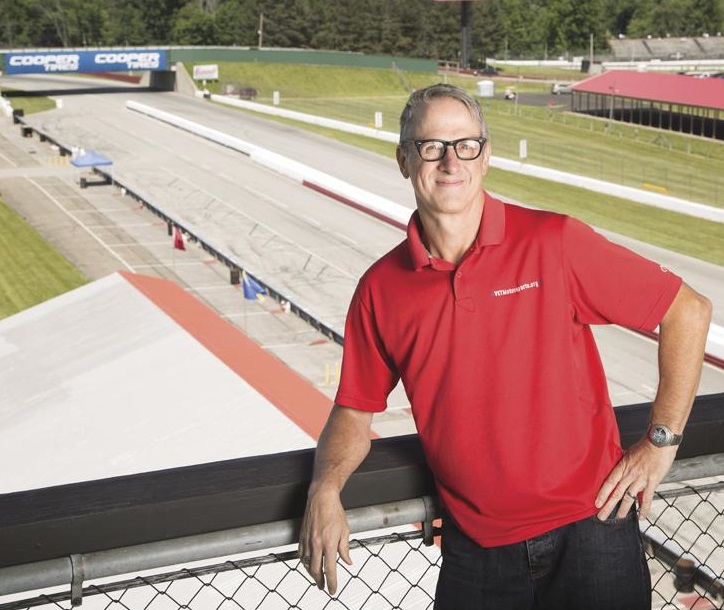
VETMotorsports is an award-winning, non-clinical outreach program that honors and empowers the military community through the active participation in motorsports. To learn more visit: vetmotorsports.org or search for them on facebook, and you can also email vetmotorsports@gmail.com
Contact: Peter Cline at vetmotorsports@gmail.com | N/A | Visit Online!![]()
![]()
![]()
![]()
![]()
Notes
- The VETMotorsports Origin Story
- What are the parallels between Military Culture and the Motorsports World?
- What is “the Language of Trust”?
- PitCrew Outreach Program
- Behind the Wheel Program
- How does someone become part of the VETMotorsports team?
- Details and Information about VETMotorsports, VETM Events and more!
- Peter’s TEDx Talk on “The Language of Trust”
and much, much more!
Transcript
Crew Chief Brad: [00:00:00] Break fix podcast is all about capturing the living history of people from all over the auto sphere, from wrench turners and racers to artists, authors, designers, and everything in between. Our goal is to inspire a new generation of petrol heads that wonder. How did they get that job or become that person?
The road to success is paved by all of us because everyone has a story. For years now, GTM has participated in community charity and philanthropic events like SCCA’s Helmholtz Off to Heroes. And last season we were introduced to the team from Vet Motorsports. An organization that, since 2013, takes veterans with service connected injuries and places them in the motorsports teams as a non clinical therapy program.
Crew Chief Eric: With us tonight is Peter Klein, Executive Director and Founder of Vet Motorsports, to explain how all this works.
Crew Chief Brad: And as always, I’m your host Brad. And I’m Eric. So let’s roll. So welcome to Break
Crew Chief Eric: Fix, Peter.
Peter Cline: Hey, thanks for having [00:01:00] me. And I want to thank everybody for tuning in to the show. Greatly appreciated.
And thanks for having us on.
Crew Chief Eric: Absolutely. So tell us about Vette Motorsports. Where did you guys come from? What’s the backstory? What’s the secret origin story here? How did this all get started?
Peter Cline: So the origin story for me is I used to race motorcycles. I guess you would call pro am or semi pro. Um, I’ve always been a gearhead though.
Like when I was growing up in Cleveland, Ohio, love muscle cars, um, was a big, am still a big Ford guy. That’s how I got into it. Just, I loved vehicles and cars and I started doing track days in 2004 and got seriously injured. I had a closed head injury, but at that point I figured, what’s the worst that can happen?
I’ve already screwed myself up and wrecked my motorcycle. I’m going to go racing. Right. So now we’re just going to go racing and go from track day to racing. So it’s probably like the guy who went out to a track day for HPDE program and hit the wall with his car and said, Oh, at this point, I might as well just go racing at this point.
And this is back in [00:02:00] 04 and it was a little bit different back then than it is nowadays. You know, the internet had just started getting involved in motor sports was really a word of mouth thing. So maybe you knew somebody that had gone racing, or if you were. In the motor sports social club, you know, or new people that had cars or motorcycles, that’s how you kind of got involved.
And so that’s what happened to me. I started out with vintage motorcycling with Arma, and then I went to Wira, which is a sanctioned, both are sanctioning organizations. And just kind of progressed from there.
Crew Chief Eric: But I did notice, uh, I reviewed your TEDx talk and you were featured on a Ohio based TEDx, and you talked about this story about a veteran friend of yours who texted you and it kind of inspired you and shot you off in a new direction where we are today with VET Motorsports.
So do you want to elaborate on that story a little bit?
Peter Cline: How we got involved with veterans is I had the opportunity to go and race in AMA Pro, which is now Moto America. For most amateur or pro am races is really kind of the pinnacle, right? That’s the, the creme de [00:03:00] la creme, the, the top of the pile. And they had a Harley Davidson spec series at that time.
And so I had some sponsorship money and I was also at that time watching top gear, the original top gear, not the new top gear, but the original top gear. And they had a segment on top gear about some UK soldiers that had come back from Iraq, Afghanistan.
Crew Chief Eric: I remember that
Peter Cline: and they were trying to qualify for the Paris to Dakar rally.
So they were, I think at the time racing or competing in a modified Volvo SUV or something along those lines.
Crew Chief Eric: And that was the first time we got to see the Stig without his helmet on, the same episode.
Peter Cline: You know, it’s a 20 minute blurb within Top Gear. And I kind of thought to myself, why can’t I do that with my racing team, as it were, you know, I’ll call you parentheses team, you know, hand quotes, air quotes around team.
Why can’t I create this thing, this [00:04:00] event, this experience that kind of takes everything that I’ve accumulated since 04 and kind of bring it together. And a little more background between 04 in 2013, when I went and did this Harley Davidson spec series, I had. Experiences with MotoGP with a wildcard team at Indianapolis Motor Speedway.
I had been a race official with USAC and FIM for MotoGP for a couple of years doing tire control. I had been a race official with Wira for a couple of years. I had gotten third in the country in Formula 2 on an underpowered Super Motard in Formula 2. Nationally, I think that was 08. And had been doing track day coaching for the super bike KTM school at mid Ohio.
So I had all these accumulative experiences that I felt that I could share, not in like a, Hey, kids get off my lawn kind of vibe, or, Hey, let me tell you how it was done a back in my day vibe, but more of, I think I have something to share. Because I felt that if we [00:05:00] could create this experience as a pit crew, for those that never would have been given the opportunity, it could be transformative.
So I reached out to some veteran organizations, nonprofits, who really thought I was off my rocker and ended up selecting a nonprofit. And, uh, we had a phone conversation and they came over to the house and we talked and they figured out it was legit. And we went off and running. And so my first professional race with AMA pro and the Harley Davidson series.
We did a fundraiser for that nonprofit, raised a bunch of money. I qualified for my race. I finished, I didn’t end up in the hospital and, uh, it was a success. The guys had a great time that were with the team. Um, I brought some people over to manage my team so I could race that I, you know, it’s trying to race and do a fundraiser and manage the vets and all that, it could have been completely distracting, but I had some great people.
I brought over to help manage the program when I was doing it for [00:06:00] the weekend. We knew we had something special. Cause everybody that was involved really had a great time and really love the opportunity. So that was really kind of, you know, the framework of how we got to where we were in the beginning.
And then we just carried it forward. We got more money to go race at Indianapolis motor speedway. The Harley Davidson series was brought over during the MotoGP weekend as kind of a, I wouldn’t say a sideshow, but it was a support race. And I got the race at Indy on the old F1 track that MotoGP was using.
I qualified 20th, but unfortunately in the last five minutes of qualifying, I ended up in the sand trap and broke my collarbone. And that was it. I was done at that point. And we had brought in veterans to be within our team to crew for me. And what was great is all the other teams took him in and basically treated him like they were one of their crew members.
And then. Um, Yeah. From that point forward, I couldn’t race anymore, at least for that year because of my [00:07:00] injuries, and we went to the next race in New Jersey at NJMP and did the same thing, except now we were providing crew members for other teams in the Harley Davidson series, and we kind of walked away from that.
And I mean, we, I refer to myself in a third person crazy sense that I knew that we had something at that point, but how are we going to harness that? Right? How are we going to use that this momentum that we had gained? And we got more sponsorship money to race the next year. The reality was, is I was not in any physical condition to, to race a motorcycle.
The injuries that I had sustained were much larger than what I previously had. I ended up destroying my knee. So I’d have ACL surgery. I’d suffered a concussion, you know, I’d broken a collarbone. Broken a rib behind my scapula. So, I mean, I was still healing up from that event.
Crew Chief Eric: You know, we joke a lot that, you know, motorcycle riders are on a whole nother level of, of the send it philosophy compared to us four wheel folks.
Peter Cline: Yeah. And really I had [00:08:00] to make a decision about racing. And I think we all come to that decision at some point in our life. Mine just was accelerated. Uh, at that point, what I came to was this is I could still do the pit crew thing. With this limited amount of money that we were given to go and race and be known for this guy that had this really cool project until the money ran out and be done with it, or I could take that money and create a nonprofit.
And from that point, it could be something greater than the sum of the individual parts. And so what I did is we formed a nonprofit. I got a whole bunch of people on board that were much smarter than me. And we went forward and that’s, that was in 2013. And we really haven’t looked back since then. And so the, really the concept of it was how can we create a transformational experience to the military community that allows them to be exposed to motor sports as.
A possible vocation as a possible social circle as [00:09:00] a, uh, a way for them to understand that adrenaline anxiety, all that’s normal, especially when you put it in a motor sports environment. Right. And I think as racers or people that are involved in motor sports that are listening, they’ll understand that, but how can you reduce that barrier?
And create a point of entry for people that want to understand what motorsports is about, but just don’t know where to start. And that kind of taps into the beginning of the conversation about when I first started, I didn’t know where to go and how to turn to. And so even with the internet, even with, uh, all the things out there that you can go to on Facebook and social media about trying to get involved in the racing, it can be an abyss for a lot of people.
And especially for those in the military that want to figure out how to get involved. That was how we started. And this is kind of where we end up at, at this point.
Crew Chief Eric: So it’s really interesting to hear your whole story and how you got from where you are to where, where we are today. So is vent motor or sports?
Awesome. Yes, it is.
Peter Cline: Thank you for asking. And I’m glad I can share that
Crew Chief Eric: with you. Let me back this up.
Peter Cline: [00:10:00] So we had this opportunity in 2014 to go to Pike’s Peak with Ducati. And this was lined up through a mutual friend of ours. You know, I’m a gearhead, but I’d never been to Pike’s Peak. I didn’t know much about Pike’s Peak as the hill climb, but I did know that asking to be involved with a team that was sponsored or working with directly with Ducati at the time wasn’t a pretty amazing thing.
So I would have consider that event like a tier one event for our participants. Meaning we had to handpick people that we know that we could send out there. Or be involved that we’re going to be reliable. And so I went out, we had a Marine from the wounded warrior regiment that still lives in the Denver, Colorado area.
Come out with us. We had two Marines come out from Ohio, both are purple heart recipients. We put them on the mountain for, I think like 10 days, you know, we were up at, well, I think we were out of the hotel at two or three in the morning in a van, driving to whatever designated point we had to unload the motorcycles.
And then we were testing, you know, For [00:11:00] a two or three hour, maybe two or three hours at best. And it was cold as hell. And then as soon as the sunlight was coming up, you were rolling the wheels and then you were done and you were back off the mountain. By like 10 a. m. And then working on the bikes or making dinner or doing laundry or whatever.
I mean, you were done by that point. So what did come out of that was a shared experience between everybody, between the Marines that I was with myself and the team, and it was extremely transformational. For me, because I got to see over a longer period of time than just a race weekend of two or three days, a 10 day experience or seven day experience and very adverse conditions with some people that really did some amazing things.
And I think one of the things that. I saw and that I struggle with and not necessarily struggle with, but that I see other veterans deal with is that if you’re coming out of the service and let’s, you know, just because you have that label of specialist or corporal [00:12:00] doesn’t mean that that label that you had in the military is going to define you.
I think, and I call myself an optimist in this case is that you’ve got to shed that, even though that’s what you were in your previous life in the military, you can shed that and really reach your potential to do something else. If you take a risk. And that’s what really came out of that weekend became real close with both Marines, you know, I’ve lost touch with one and then I’ve recently kind of lost touch with another, but, you know, they felt comfortable in their experiences that they came to me, you know, in time of need to talk or, or to make sure that everything was okay.
I mean, they are really good guys and we kind of have that shared bond from that experience, even though we don’t talk right now. So, and I think we’ll always be connected by that experience. Yeah.
Crew Chief Eric: So Pete, are you a former serviceman yourself or what’s the connection back to veterans?
Peter Cline: Uh, no, I never served.
My stepdad was second ID. He was in Korea at the [00:13:00] DMZ during the Vietnam era, which some people call the second Korean war. It was a pretty tense over there at that time. My grandfather, I was in the army air corps during world war two doing pilot training. He never went overseas or was never deployed overseas, but did pilot training, I think in California.
Uh, my other grandfather served during the occupational forces during world war two in Japan. So there is this small connected service history, part of my family, but never served. But I wanted to do something within the military space. Cause I felt not only. I felt this connection for some reason, and I, and I can’t really put my finger on it.
Crew Chief Eric: It’s very noble. I mean, I’ve been, I’ve personally been supporting the military for over 20 years now and I haven’t served either, but you know, I tip my hat to everyone that has, and I, I thank everyone for their service. And that’s why we’re engaged with events like helmets off to heroes. We engage with organizations like yours for philanthropic reasons because we do want to give back and we have that long [00:14:00] lasting connection to the DOD as a whole.
So. How do you connect motorsports to veterans? How did, how did you bridge that gap? Let’s go back to that question.
Peter Cline: Let me just say that when we first started out the nonprofit, there was a lot of miscues and missteps, like with trying to interact with veterans. And I think veterans or military can be extremely distrustful of the media.
They’re very loyal. Loyalty and service are very high up there. And so when working with the military, a lot of it is about trust and it’s about building that trust and building that repertoire or that conversation with somebody that you’re going to work on a weekend. And there’s clearly questions that you don’t ask.
For those listening, you know, you know, how many people did you kill? Or, you know, there’s some really asinine questions that you can throw out there that really can alienate, not only you and make you look like a complete idiot, but those people don’t really want anything to do with you at that point.
You know, my approach has always been, someone’s here to have a great time in motor [00:15:00] sports. We’re going to show them a great time. We’re going to provide them a quality event. And you know what, if they want to talk about their service history, Great. If they want to commensurate with another veteran that’s participating in our program or maybe they’re with the club or whatever, that’s really what it’s about.
But it’s about creating that kind of social environment where they’re acclimating themselves to civilians and understanding that their adrenaline can be controlled. But back to the original question, working with veterans has, it’s been difficult because again, I don’t know, have that vernacular, that vocabulary, that shared experiences that a lot of veterans have.
And it’s not. A shared experience from the deployment perspective, although that really does come into it, especially if they’ve been a combat deployment, but I mean, there’s even on the most basic level from boot camp to advanced training. They all have that kind of shared experience, even if they were never put in a, in a combat situation.
So it’s trying to understand the language. And [00:16:00] the talk and the presence of that, and that just takes time. That’s something that you’re never going to pick up right away.
Crew Chief Eric: Yeah. And you refer to that in your Ted talk as the language of trust. So were you able to find overlap between the motor sports world, especially coming from the motorcycle world with veterans, where you could build that connection and build a bridge between them and start to, I guess, you know, In some ways you do mention in your Ted talk, it’s all about the team.
It’s about being part of something, about building something. So you want to elaborate on that a little bit.
Peter Cline: Again, we’re talking to very general things here. So I don’t want somebody that’s listening to this to think that I’ve got it all figured out, right. How to speak a language to veterans or whatever, but there are some common things that I’ve observed in working as a civilian in the veteran space, this language, as you know, most.
Veterans want to have a purpose. Most people want to have a purpose. They want to have a mission. They want to be able [00:17:00] to trust the people that they’re around. They want to have a camaraderie. And I think when people that are in the service come out of the service, they miss those things, right? And there’s a huge gap between the civilian world and the military world, right?
In the military world, everything’s black and white. And there’s, As far as orders and missions and commands. And there’s this, uh, you know, sense of purpose and that really kind of gets eluded or lost when they come out. And so what we found when we integrated the military and veteran community into motorsports is that for those that have you or that are listening, that are.
Race, whether it’s a car or motorcycle or tractor or whatever, right? You have all that. You have a race schedule. You’ve got a tech sheet. You’ve got more than one person working on the car. You’ve got anxiety. You’ve got adrenaline. You’ve got all these things that really kind of were in the military shoved into this one, two or three or even 10 day event.
In motorsports, right? And so that [00:18:00] was the connection for us. You have in a very simplistic term, you have a population of people that are looking to fill this void that they had in the military, which was camaraderie trust. Adrenaline mission, sense of purpose, and Motorsport does that. Now, to be pretty clear, it’s not for every person that comes to our program, right?
Not every person that comes to us is gonna walk away from a Motorsports event and say, you know what? I really want this. This is what I want to do. I mean, they’re. There are some people leave our events. Some people walk out, they’ll participate, and they walk away and they’re like, you know, that’s not for me.
And that’s fine, but at least they came out and they tried it. They were able to get out of the house. work through whatever anxiety they may have had for the event, participate with civilians and other veterans, and then have a great time and then decide, you know what, this wasn’t for me. And maybe out of that, what comes out of this participation is, you know what, I did this, so I can definitely do this now.
Or, you know [00:19:00] what, I did this, I didn’t like it, but maybe I want to go do that. Hopefully the program’s a catalyst for those that come out to try something different if they didn’t like this. Ideally, we want them to be involved in motor sports. That’s at the best at the worst. They came out of the house and they were able to go in and experience something that they didn’t have prior.
That is the kind of the big dichotomy shift right now is the aging demographic. And can some of the traditional brands stay on top? And much like it is in motor sports and car racing, you’re seeing this Exodus of talent because they were Vietnam or Korean era guys that had money that were spending them on cars and going car racing.
So how do you infuse, and that’s kind of what motorsports does is how do you infuse this younger generation, this younger talent to get involved in the motorsports, whether it’s motorcycling or car racing or whatever. Right. And so that’s an opportunity for [00:20:00] people, right? It’s this crisis of. This vacuum is happening with the, these people leaving the sport, uh, they’re aging out, but it’s also an opportunity for people to create pathways for people to get involved.
And that’s kind of what we’re trying to do at the same time.
Crew Chief Eric: Absolutely. And we talk about it a lot within our organization, you know, this whole concept of fellowship, right. And, and we’re, we’re not a small organization. We’re not huge either, but we do house a lot of former DOD and actually, currently enlisted folk as well.
And so, you know, when we’re in an event together and we travel in large numbers and something goes royally pear shaped, it’s amazing to see the vets and the DoD guys step up right away. They go into action. There’s not a lot of talking. Everybody’s got their, their role and responsibility and things get done quickly.
And, you know, oftentimes people submit. They look like a pit crew, right? And we’ve had some things break and things go wrong and people crash and whatnot. But it’s always very calming to know that you have these [00:21:00] everybody’s there to support each other. And I think to your point, a lot of people miss that.
And so I think you’re doing a great thing. And it resonates 100 percent with what we’re doing. But I also want to expand upon What that motor sports offers. So you have like two different kinds of programs from what I can tell and correct me if I’m wrong. There’s a pit crew outreach program, and then a behind the wheel program.
So do you want to explain what those two are and how people get involved and what the expectations should be?
Peter Cline: Yeah. So for us, we started in motorcycles and I, and you know, that’s how I cut my teeth as a racer and that’s how the program started. You know, we actually started working with Triumph North America and we were able to get a Marine hired into their team as a full time mechanic, uh, when Triumph was racing motorcycles between 2014 and 2015.
So for us, You know, for the listeners out there, the population that we service is any veteran from any era with a service connected injury, any active, Guard or [00:22:00] reserve military member or any gold star family member. And so, you know, we expanded the program to encompass the majority of people in the military, plus a guest.
You think that you want to be involved and you fit into that population that we’re serving. Or even if you don’t, but you know, somebody that is in that service population and you want to get involved. We can probably accommodate you. All I have to do is reach out and we can let you know if you can participate or not.
Our pit crew experiences, they’re across the board. So right now, we’ve done stuff in Formula 2, Formula 3 with SCCA. We’ve done stuff at the Baja 1000 with MAG 7 and Warfighter Made. We’ve done stuff with NASA and some late model teams. We’ve done land speed racing with The Garage Shop based in North Carolina.
They’ve been with us for forever. And we’ve actually, some of our veterans have land speed race. Records with them and we just got it involved into vintage drag racing [00:23:00] which into itself is this completely different I mean for those that drag race drag racing is a culture into itself, but especially vintage drag racing So those are our pit crew experiences and they can range from one day to three days And what we’ll do is we’ll solicit for participants.
We have a registration page that people can go to. We have all of our events from pit crew to behind the wheel, and they can see if they want to participate and they can go and we’ll do some verification of service history. If they’ve never been with us before, connect them to the team and they get to be with that team for whatever period of day or days.
Working on the vehicle or being with a vehicle and hanging with them and doing whatever duties that the team assigns to them. And they don’t necessarily need to have mechanical background or aptitude, although that’s nice, but they just need to be willing to show up and be on time and be there for the team and just kind of experienced the whole event.
Crew Chief Eric: So how do you go [00:24:00] from the guy that’s checking tire pressures and moving the tires around the paddock to the guy behind the wheel?
Peter Cline: So the behind the wheel program. We’ve had a couple opportunities recently. We had a land speed opportunity and the driver of that card, actually, the car was lent to him by one of the members of the East coast timing association.
So thanks Andy, for that. He was able to set a land speed record, but he was a pit crew guy for the garage shop, and so this Marine. Came to us. We gave him a pit crew opportunity. He was looking for a career opportunity. He’s got one now with this team. And then that transferred into getting behind the wheel of this car to do a land speed run and actually hold a land speed record.
It’s not that complicated for somebody that just wants to come to us. So we typically. Do autocross events with the sports car club of America. We’re actually, one of our biggest supporters is the SCCA foundation. They provide us funding to get people involved in autocross and other SCC activities, such as road [00:25:00] rally track night in America, that type of thing.
What we try to do as an organization is again, lower that barrier for those that want to get involved. So if someone comes to us and says, I want to get behind the wheel, We have, I think at least nine national programs right now for autocross across the U S it’s typically more, but with COVID right now in the current situation, it’s a lot of that’s been cut back just due to social gatherings and all that stuff related to COVID we’ll provide a car we’ll provide in car instruction, helmets, pay for the entry fees, and we’ll put them in an autocross.
Event with other veterans and with our program managers. And we’ll, for a day, we’ll get them behind the wheel and just do autocross. Um, we’ve done stuff down at MSR Houston with James Rogerson. We’re actually doing a hand control car now, or he’s doing a hand control car. And if somebody wants to get their race license and they need a hand control car due to their, uh, [00:26:00] catastrophic injuries, or if they can’t use their hand, uh, hands or feet.
There’s a way that the car is set up now where they can go and get behind the wheel and do wheel to wheel racing or wheel to wheel and get their race license. It’s not a stretch to go from pit crew to behind the wheel. There are two different paths because we understand, at least we as the non profit, as Vet Motorsports, understand that not everybody Wants to race a car or has the ability to race a car.
Some people just want to work on a car, right? These people, these veterans, these military personnel that come out have great mechanical aptitude. And so they want to work on vehicles and being part of that team. Others want to get that adrenaline rush, but by beginning behind the wheel. So we offer these two different paths, you know, the behind the wheel one.
And the pit crew one, we have some motorcycle stuff as well for riding in North Carolina. That’s what we have.
Crew Chief Brad: So there’s a lot of opportunities for vets to get involved and you go participate in these programs and everything. Do you have any ways for non [00:27:00] vets to get involved if people just want to help move through donations or if they just want to donate their time or there any type of resources that they may have to help you all out to help you help the vets?
Do you have things for that? That’s
Peter Cline: a great question. And we are for the listener out there, a 100 percent volunteer based organization. So even myself as the CEO, I don’t get paid. Our executive board doesn’t get paid. Our voting board doesn’t get paid. Even our program managers nationwide don’t get paid.
So if somebody is listening to this. Civilian or military and they want to get involved. We are fueled by one donations and they can donate on our page to Volunteers that want to help manage programming or be involved in the veteran community and that’s what makes it happen So we have what’s called a street team.
We use that phrase, uh back from the 70s In 80s, uh, the indie music scene had people that would go out and promote bands and that [00:28:00] kind of thing. I don’t know if I got off topic there for a second, but so we have people that’s called a street team and they’re our program managers. Those are the people that just want to run stickers on their car to promote what we do.
Those are our donors. Those are the people that have gone to the well and drank it and believe in it. And they think that this is as transformational to the military community as we think it is, and we know it is. And they just go out there and spread the gospel as it were.
Crew Chief Eric: That’s awesome. And if you’re looking for coaches, you can always call us because there’s a ton of us.
They were always willing to help out. So let us know, especially if you’re, you know, in the DMV area or we run on a ton of different tracks. So it sounds like it’s pretty easy to become part of the VET Motorsports team. Go to the website, fill out a form, you know, some verification checks and whatnot. The bigger question for a lot of people that might be new to this and they might be wondering is, Are there fees?
Are there costs? Who should they reach out to for more information? You know, some of those other details that may help lower the bar a little bit more, lower that barrier to entry. [00:29:00]
Peter Cline: If somebody wants to get involved with Vet Motorsports, we would ask them to go to VetMotorsports. org, O R G, and we have a contact us form.
Page there or forum and they can send us a message about getting involved from that point. The ball just gets rolling and we, you know, asking where they live. And we don’t really ask for anybody’s service history up front until we actually confirm them into an event. So, if somebody just wants to have a casual conversation about getting involved or volunteering or donating, or whatever the case may be, that’s where you’re going to do it at.
We also have. On our social media couple of forums, you know, we’re on instagram so you can send us a message on instagram We’re at that motorsports there. We’re on facebook At Vet Motorsports, and you can contact us there as well. So we try to have these different social media platforms to not only share our stories, but for people to reach out to us and to get involved.
From there, they can just ask all the questions they want. Try to make it pretty clear on the webpage, but understandably, some people want to have that personal interaction as well. [00:30:00] And then from there, we just try to figure out where to route them to the best opportunity.
Crew Chief Eric: And then costs or fees or anything like that?
How is that managed? No,
Peter Cline: no, there’s no, there’s no annual fee. There’s no, you know, cost as far as we’re going to charge them for anything. We try to cover all the costs for the event upfront. And, uh, from entry fees to food to water, it just depends on the nature of the event. I mean, right now to be pretty upfront money’s pretty tight strictly because of COVID and donations and, and whatnot.
Um, but we’re going to try to try to cover as much of that cost as possible.
Crew Chief Eric: Wow. That’s awesome. Is Vet Motorsports regional, a little more local, or are you guys reaching out nationwide to set up these different types of events and people get connected? How does that network work?
Peter Cline: With us setting up events?
That’s a great question. We work on a lot of different levels. So, you know, you mentioned earlier about how can people get involved if they’re not in the military or if they are in the military as a donor or as a volunteer. For us to set up events nationally, we have a [00:31:00] volunteer base for the autocross program with the SCCA foundation where they manage three to four events a year and we allocate them a budget and they just host the events and so that’s I think in currently in nine states.
When it comes to the pit crew experiences teams come to us, With some opportunities, or we have an established relationship with some people. We know their schedule and we’ll go and put it out there. And sometimes opportunities just come to us out of the blue. Like we talked earlier, I don’t know if it’ll be on this pod in this segment, but we talked about, you know, going to Laguna Seca and being involved with Mazda.
I mean, they just called us right. And so we were able to go out there and facilitate that or with Ducati at Pike’s Peak, or. You know, fill in the blank. Some of the other opportunities that we’ve had, we have had some amazing opportunities from a national perspective. We have a set base of people that we interact with and then people, some organizations [00:32:00] or some clubs or some teams will come to us.
The one off, you know, our first thing with drag racing this year with, uh, the great lakes nostalgic drag racing association was an amazing opportunity for races working on vintage funny cars. Right. And then with the mag seven thing at Baja, they’ll come to us and say, we have an opportunity for some vets in California if they want to go to Baja.
and work in a neutral pit environment that will work on any vehicle. So we set up a schedule for those that we work with on a regular basis. And then if we’re presented a quality opportunity that puts the veteran or military member in the best position to succeed, we We’re going to take that opportunity as well.
Crew Chief Eric: Excellent. I just wanted to make sure that people understood that they could call you from Hawaii or Georgia or New York or whatever, and say, Hey, Pete, I want to do something with veterans, or I want to be part of a team. I am a veteran, et cetera, and know that it’s just not at mid Ohio or wherever. Right.
So that’s really good to know. And that’s great information for everybody that’s out there that may be interested.
Peter Cline: Well, I want to add to that too. I also want to make it pretty clear. [00:33:00] I don’t want to leave people to stray that are listening to this, right? Vet Motorsports can’t be an end all be all for all veterans, for everything, right?
So, If someone comes to us in a location that we don’t have a program in, we may turn them on to a different nonprofit that maybe can give them what they’re looking for. We are constricted as a nonprofit by like any business, any other nonprofit by a monetary constraint, by a time constraint, by volunteer constraint.
So if you come to us, And we can’t do something for you. We probably can turn you on to somebody that can help you out. And so I just want to be pretty clear on that. So if people are beating down our door to get in and have an event and we can’t do it, I don’t want them to be disappointed because we’re not there, but we’ll do our best to maybe put you with somebody that can help you out or provide an experience for you.
Crew Chief Eric: So if I want to find. events specifically, where would I go to find that? Would I go on the website? Would I look on [00:34:00] motorsports reg? What’s the best way to see a list or a schedule of what’s upcoming for the year?
Peter Cline: So the best way to find out what we do is we actually just staple flyers to telephone poles, like bands did in the eighties.
And then no, I’m just kidding. I’m going to do anything like that. You want my mixtape, my hot rock and mixtape. We have an, uh, what’s called an event. Right. So there’s this platform called Eventbrite where people can post up events and they can register and whatnot. And so if you go to Eventbrite and type in Vet Motorsports, our stuff’s going to come up and we’re going to list all of our events nationally there.
So Vet Motorsports on Eventbrite, you go there, all the events will be posted. And we do have a capacity limit for certain events. In some events we don’t necessarily Post because we do have I guess what you would call tier one events where we’re going to hand select Past participants for a unique opportunity based on their reliability.
If you go to our webpage or if you go to Eventbrite, we’ll [00:35:00] have opportunities posted there and just sign up if you’re interested in attending. I’m throwing it out there. Cause I, I guess I’m looking for input, which we’re going to do an iRace fundraiser over Armed Forces Week. So we’re going to do, the concept is we’re going to run it through the SCCA.
There’s a guy that’s doing the unofficial SCCA iRacing. So we’re going to do, I think the concept is going to be a qualification and race using one of the free tracks and cars that’s offered on the platform. So you don’t have to buy anything, but the entry fee will be a donation. And then you get to represent a branch of the armed services.
And so we’ll have all fires. And then there’ll be winners for the race, and then based on a cumulative scoring, like a manufacturer’s points kind of thing that you do for nascar, but for the military. So whoever the top runners are combined, out of all the field of people that we run, that’ll be the top rant of the [00:36:00] military represented that weekend.
Okay. So we’re going to just
Crew Chief Eric: doing one, one race, not a series of races.
Peter Cline: We’re going to do qualifiers and then a race. So we’re going to have, I think capacity at some of these tracks is 60. So what we want to do is like three qualifiers. And then we’re going to take the top, whatever, and then they will be in the main event.
And then we may have an LCQ or something like that. We’re going to sort it out.
Crew Chief Eric: Got it. Okay.
Peter Cline: I want to keep it simple, but I want to make it complicated. I’m not sure. So it’s
Crew Chief Eric: just like our virtual racing league, super complicated.
Peter Cline: I don’t want to make it complicated. I want to get people involved and donate to the cause, but I want to make it fun.
It’d be like a golf outing, but worse. Um, do you have questions after you go to eventbrite? Motorsports, you can send us a message as well. The one thing I do want to talk about for those that listen is, you know, we get a lot of people that come to us and veterans and military community and, Hey, I want to get involved in motorsports.
I want to have a career in motorsports. [00:37:00] And there are some programs out there. I think, you know, the Andretti family has a motorsports program, and there’s some other programs as well. But what I would tell those that are listening that want to get involved in the motorsports as a vocation is, um, there’s a couple of things.
First off, you have to kind of put yourself out there and have the kind of personality to go and meet and talk to people about. Hey, can I do this? Or can I do that? You have to understand that even if somebody says no to you, the next thing you should really ask them is, uh, you know, Hey, I know you’re saying no, but you know, somebody that, may be interested in helping me out.
I think some of the frustration from the veteran and military community, you know, I have this skillset that I developed, you know, while I was serving, you know, working on tanks or combat vehicles or trucks or whatever it can, it does cross over. I do think that for those wanting to get involved, in a crew perspective, there needs to be a better pathway for them to get involved.
[00:38:00] And I’m not saying, I mean, we’ve done direct hire for triumph and we’ve done some hiring and some other teams as well, but it’s like a secondary after effect for lack of a better term. It just happened by chance, right? Or the opportunity was created more importantly, the opportunity was created because the veteran was really willing to kind of put themselves out there And take a risk by showing up to our events or even putting themselves in that position and.
It’s hard for those listening to understand how important that is, that you do need to take a chance, but also to, to understand the reality of being involved in a team, I think a slight misconception by some that it’s romantic and that it’s glamorous. I mean, and it does have that kind of a lure to it, right?
You’re on the road and you’re traveling and around fast cars. And occasionally probably a pretty good looking woman is your umbrella girl or whatever the case may be. Right. But it’s also a lot of work. I mean, you’re at the track eight to 10 hours, you’re [00:39:00] possibly rebuilding a car. And again, that replicates the whole military.
Background of dedication and teamwork, but there is a serious amount of time commitment in being involved in a professional team from a, not only at the track, but in the shop when you’re not at the track and travel. And I really. Want to convey that during this, this interview to those that really want to make motor sports a vocation, you know, I want to summarize that too, but you need to create opportunities.
Now you can come to us and create opportunities and which we can try to put you in the right direction. I think the best thing that people can do is just go out and experience it. Either through, if not our program, other programs and see if it’s something they want to get involved in and then go from there.
Um, but that’s something I really wanted to talk about because we’ve had these conversations with race teams, I’ve had conversations with veterans and military people, you know, there’s really no program right now that really provides a straight path. [00:40:00] And it goes back to the early part of the interview too, where there’s this huge vacuum of people leaving motor sports.
Not because it’s not profitable, but because they’ve aged out, right? There’s a lot of talent that kind of came in after Vietnam that is now leaving. And so there’s always going to be a need. For people to be mechanics, to be involved in IndyCar, to be involved in NASCAR, but you’ve got to find that there’s got to be a pathway that is a little more clear cut than just kind of throwing darts in the basement with no light on trying to hopefully hit the mark.
The one thing that I do want to stress in working with the military community, and especially for those listening right now, is that everybody has the ability to do amazing things. And I can tell you right now through personal experience and working with other people that suicide is not the answer. And for those that have contemplated it or considered it, who [00:41:00] think that they have no value or that problems are not worth working through, I can tell you right now that I would ask those that need help to seek it through their family or through their church or through fellow veterans.
The conversations may be difficult, or you may think they’re difficult. The release that you will get through talking through your problems and talking to people that you can trust or earning people’s trust will go a long way to helping resolve those issues. Maybe some of the pain you’re going through and maybe some of the issues that you’re going through.
I’m not going to sit here at the end of this podcast and tell you that I’ve been there. I haven’t been there, but what I can tell you is that those thoughts and those actions, you can work through them. You’ve just got to be patient and that people understand that people do care that you stay here. And I want to make that pretty clear at the end of this, uh, of, of this interview.[00:42:00]
Crew Chief Eric: Absolutely. I agree with that. And you know, it’s kind of interesting. I think there’s an extra or in there. You mentioned church and this and that. I think the extra war in there is motor sports because I’ve often found, and it’s been demonstrated without provocation that motor sports is cathartic, right?
Even though you’re in the paddock and maybe you’re changing tires or you’re, you know, changing an axle for the hundredth time, there’s these conversations that just start and feelings get expressed and emotions, whatever. And guys just You know, we have a hard time opening up to each other and not saying it isn’t just guys alone, guys and guys.
He is, but there’s something about working on a car, working on a vehicle, being part of that team, that the barriers drop, it just invites conversation and invites, like you said at the beginning, that camaraderie, that fellowship, as we describe it, where you get closer with your teammates. And so you learn more and you’re able to kind of just let go of things.
And then there’s always the, the extremely. Therapeutic part of just cursing at the car until you’ve run [00:43:00] out of expletives, because that is extremely relaxing, at least on my part. So there’s something to be said. There’s something for everybody in motorsport. Right.
Peter Cline: Right. I mean, that’s, what is that? Uh, it’s called a mechanics Tourette’s
Crew Chief Eric: a hundred percent,
Peter Cline: a hundred percent.
Um, so yeah, I, I wanted to say that cause I think it’s, you know, you, you nailed it motorsports does provide that, but I do think that, you know, we provide that Other organizations can provide that. But I think when the rubber hits the road, no pun intended, if you are seriously considering harming yourself or others, I do think there are definitely resources that you can tap into that can get you through that.
Although you may not think. They’re going to help. They do. Right. So I guess you had some other questions, things you want to wrap up with.
Crew Chief Eric: Is there anybody you want to thank or shout outs or anything you want to do? Other sponsors, et cetera.
Peter Cline: Yeah. So there are some people that I definitely want to thank and they’re numerous.
So I’m going to do my best here to recite this. List of [00:44:00] people. And if I forget anybody, I apologize. Certainly that is not the intent. So here it goes. So I definitely want to thank the SCCA foundation and the SCCA incorporated sports car club of America for supporting our programming over the past couple of years and committing themselves to us for 2021.
Um, we could not ask for a better partner. I want to thank the garage shop and everybody over there, especially Aaron Brown for. Uh, bringing on Mike, the Marine, and providing him a land speed opportunity. I want to thank Black Flag Motorsports for logoing up their car, doing grid life with our logos on their car, and also, uh, Champ Car.
I want to thank Sean Clifton, Special Forces, a part recipient for being our brand ambassador along with auto interests. For providing us novice bootcamp opportunities for new drivers to get on track with HVDE programming. I want to thank, Oh my God. There’s so many people that [00:45:00] like logo up their car. I want to thank Steven, Don in Atlanta for logoing up his late model.
I mean, that thing looks super boss with our logo on the hood. I want to thank everybody at one lap of America that raced with our logos on their car. Um, I want to thank everybody that’s donated, especially to our programming. 80 percent of what they give to us as a donation goes directly towards what we do, you know, our average event per event cost is about 550 bucks, not accommodates for veterans and for guests.
And, uh, you know, it’s a life changing experience for them. So all the teams. All the donors, all the volunteers, anybody that’s running our sticker on their car, even their daily beater. If it’s a, you go to the get, you know, to the grocery store running a, uh, a decal, which is free by the way, if you email us, thank you.
Crew Chief Eric: So Peter, I want to thank you. And I can’t thank you enough for coming on our show, spreading the word. The message, you know, this is something that really resonates with us at GTM. You know, we’ve been volunteering with window warriors, helmets, [00:46:00] up to heroes, et cetera, for many, many years now. Again, we have a lot of people in our organization that are currently enlisted, you know, former DOD veterans, et cetera.
So this hits really close to home for us. Really cool that an organization like that motor sports exists in the first place. So this is really awesome. So I want to thank you for coming on, and I wanna remind everybody that Vet Motorsports is an award-winning nonclinical outreach program that honors and empowers the military community through their active participation in Motorsport.
So to learn more about Vet Motorsports, visit their website, VET motorsports.org or search them on Facebook, and you can also email Vet motorsports@gmail.com. So again, Pete, thank you so much for coming on the show.
Peter Cline: I want to thank everybody for listening and super appreciative for the opportunity to speak.
Hopefully we can get back on, uh, at a later time. We could talk, uh, heavy metal. I rock Camaros in Cleveland.
Crew Chief Eric: Absolutely. Cause Cleveland rocks.
Peter Cline: Cleveland rocks.[00:47:00]
Crew Chief Brad: If you like what you’ve heard and want to learn more about GTM, be sure to check us out on www. gtmotorsports. org. You can also find us on Instagram Also, if you want to get involved or have suggestions for future shows, You can call or text us at 202 630 1770, or send us an email at crewchief at gtmotorsports.
org. We’d love to hear from you.
Crew Chief Eric: Hey everybody, Crew Chief Eric here. We really hope you enjoyed this episode of Break Fix, and we wanted to remind you that GTM remains a no annual fees organization. And our goal is to continue to bring you quality episodes like this one at no charge. As a loyal listener, please consider subscribing to our Patreon for bonus and behind the scenes content, extra goodies, and GTM swag.
For as little as 2. 50 a month, you can keep our developers, writers, editors, casters, and other volunteers fed [00:48:00] on their strict diet of fig newtons, gummy bears, and monster. Consider signing up for Patreon today at www. patreon. com. patreon. com forward slash GT Motorsports and remember without fans, supporters, and members like you, none of this would be possible.
Highlights
Skip ahead if you must… Here’s the highlights from this episode you might be most interested in and their corresponding time stamps.
- 00:00 Introduction to Break/Fix Podcast
- 00:47 Meet Peter Cline and Vet Motorsports
- 01:13 Peter’s Racing Journey and Injuries
- 02:30 Inspiration Behind Vet Motorsports
- 05:27 First Professional Race and Fundraising
- 06:55 Challenges and Growth of Vet Motorsports
- 09:58 Pike’s Peak Experience with Ducati
- 14:03 Connecting Veterans with Motorsports
- 21:13 Programs Offered by Vet Motorsports
- 24:10 Land Speed Record and Pit Crew Opportunities
- 24:46 Autocross Events and SCCA Foundation Support
- 25:50 Hand Control Car and Racing Licenses
- 26:16 Paths for Veterans: Pit Crew and Behind the Wheel
- 27:13 Volunteer Opportunities and Street Team
- 28:39 Getting Involved with Vet Motorsports
- 30:33 National Events and Partnerships
- 36:47 Motorsports as a Vocation for Veterans
- 40:33 Mental Health and Support Resources
- 43:46 Thank You and Acknowledgements
- 46:29 Conclusion and Contact Information
Learn More
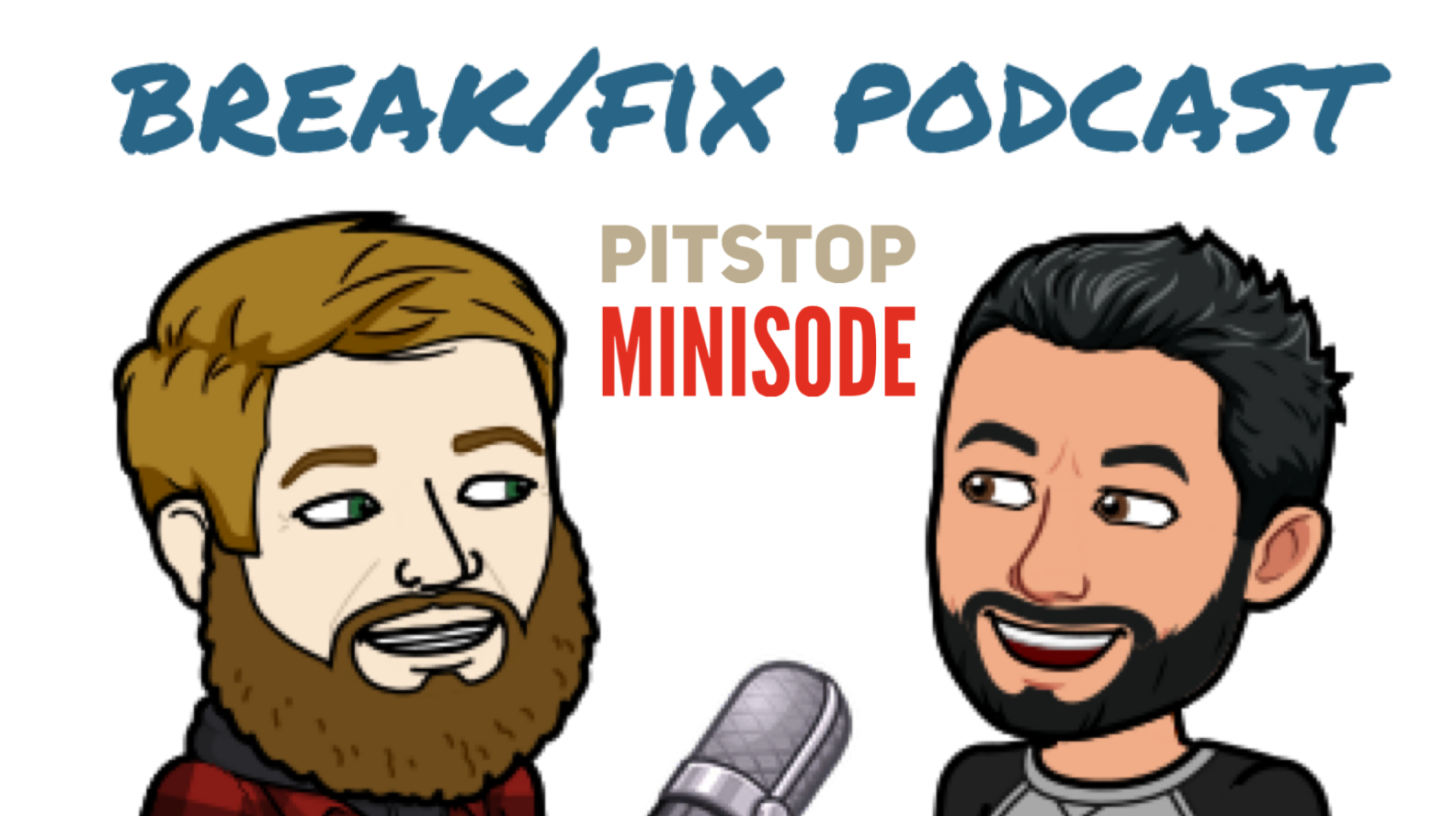 Bonus content available as a #PITSTOP mini-sode.
Bonus content available as a #PITSTOP mini-sode.Consider becoming a GTM Patreon Supporter and get behind the scenes content and schwag!
Do you like what you've seen, heard and read? - Don't forget, GTM is fueled by volunteers and remains a no-annual-fee organization, but we still need help to pay to keep the lights on... For as little as $2.50/month you can help us keep the momentum going so we can continue to record, write, edit and broadcast your favorite content. Support GTM today! or make a One Time Donation.
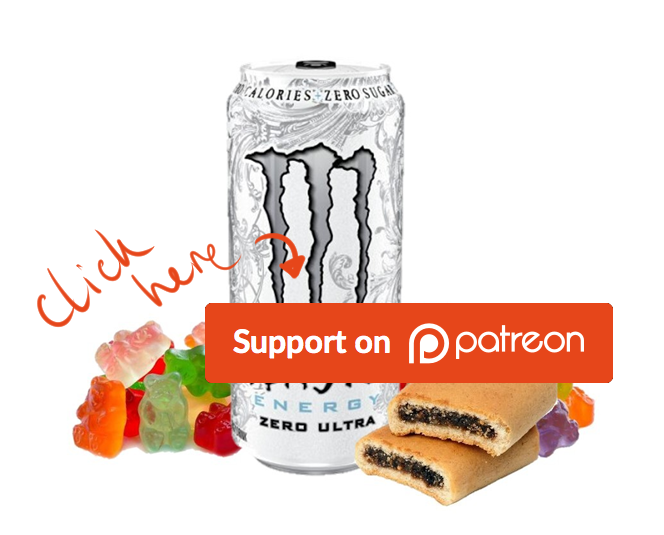
If you enjoyed this episode, please go to Apple Podcasts and leave us a review. That would help us beat the algorithms and help spread the enthusiasm to others by way of Break/Fix and GTM. Subscribe to Break/Fix using your favorite Podcast App:
 |  |  |
VETMotorsports is an award-winning, non-clinical outreach program that honors and empowers the military community through the active participation in motorsports. To learn more visit: vetmotorsports.org or search for them on facebook, and you can also email vetmotorsports@gmail.com
There’s more to this story…
Some stories are just too good for the main episode… Check out this Behind the Scenes Pit Stop Minisode! Available exclusively on our Patreon.
This content has been brought to you in-part by sponsorship through...
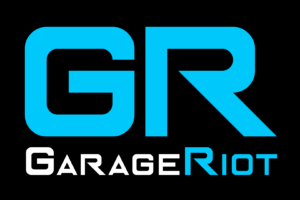 | 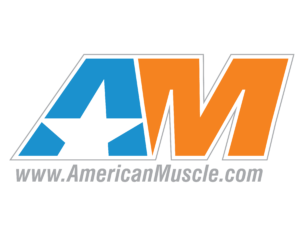 | 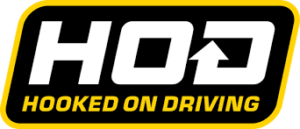 | 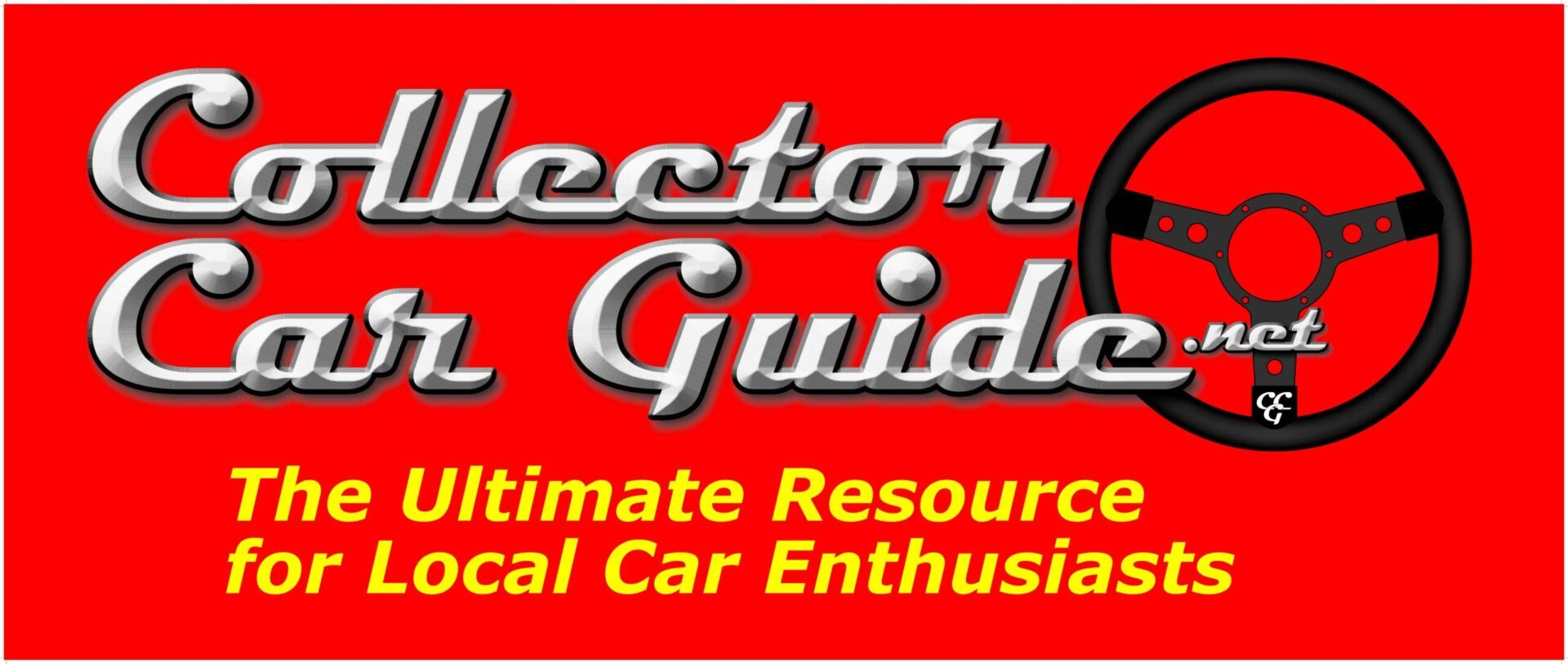 |


